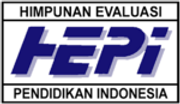The Role of Islamic Education in Teaching Moral Values to Students
Abstract
The purpose of this study is to interpret the consequential role of Islamic education in shaping students’ noble character. Islam, which was supposed to be the basis for the mindset and attitude pattern in a Muslim-majority country, is no longer a solid reference. What has long been regarded as foul, non-Islamic behaviors are increasingly rampant today. Public display of blatant nudity and sex related activity shown on social media has become a disconcerting phenomenon. This research is a type of qualitative research with a qualitative descriptive research approach. The data collection techniques adopted observation, documentation, and interviews to determine the role of Islamic education in shaping students' morals. Based on the data obtained, students at SD Khoiru Ummah Yogyakarta learning Islamic education are taught about Aqidah, sharia, and morals. The results show that the role of teaching and learning Islamic education can shape the character of students who have noble character where this is reflected in their thinking, their fidelity to religion, their courage to voice the truth, and their good influence on their families, communities, and society.
Keywords
Full Text:
PDFReferences
Abramova VS, Boulahnane S.(2019).Exploring the potential of online English websites in teaching English tonon-linguistic major students: BreakingNewsEnglish as example. Register Journal. 12 (1):1-12.https://doi.org/10.18326/rgt.v12i1.1-12
Adela, L. (2019). Strategi Pelatihan Muhadharah Terhadap Kemampuan Berdakwah Santri Pondok Pesantren Darul Ulya Iringmulyo Kecamatan Metro Timur Kota Metro Lampung. Institut Agama Islam Negeri Metro.
Ainiyah, N. (2013). Karakter Melalui Pendidikan Agama Islam. Jurnal Pendidikan, 13(1), 7.
Aladdiin, H. M. F., & Ps, A. M. B. K. (2019). Peran Materi Pendidikan Agama Islam di Sekolah dalam Membentuk Karakter Kebangsaan. Jurnal Penelitian Medan Agama, 10(2).
Alwi, Z., Parmitasari, R. D. A., & Syariati, A. (2021). An assessment on Islamic banking ethics through some salient points in the prophetic tradition. Heliyon, 7(5), e07103. https://doi.org/10.1016/J.HELIYON.2021.E07103
Bafadhol, I. (2017). PENDIDIKAN AKHLAK DALAM PERSPEKTIF ISLAM. Jurnal Edukasi Islami Jurnal Pendidikan Islam, 6(12), 45–61.
Chusna, P. A. (2017). Pengaruh Media Gadget pada Perkembangan Karakter Anak. Dinamika Penelitian Media Komunikasi Penelitian Sosial Keagamaan, 17(2), 315.
Elihami, A. S. (2018). Penerapan Pembelajaran Pendidikan Agama Islam dalam Membentuk Karakter Pribadi yang Islami. Jurnal Edumaspul, 2(1).
Fikri, M. (2011). Konsep Pendidikan Islam; Pendekatan Metode Pengajaran. Jurnal Ilmiah: Islam Futura, 11(1), 118.
Ginanjar M. H. (2017). Pembelajaran Akidah Akhlak Dan Korelasinya Dengan Peningkatan Akhlak Al-Karimah Peserta Didik. Jurnal Edukasi Islami Jurnal Pendidikan Islam, 6(12), 104.
Hadi, A., & Uyuni, B. (2021). The Critical Concept of Normal Personality. Al-Risalah: Jurnal Studi Agama Dan Pemikiran Islam, 12(1), 1–19. https://doi.org/10.34005/ALRISALAH.V12I1.1192
Hasbullah H M. (2015). Kebijakan Pendidikan dalam Perspektif. Jakarta: Raja Grafindo Persada.
Hasgimianti. (2017). Perhatian Orang Tua dan Motivasi Belajar Siswa yang Berlatar Belakang Melayu dan Jawa. INSIGHT Jurnal Bimbingan Konseling, 6(2), 130.
Imam Syafe’i. (2015). Tujuan Pendidikan Islam. Al-Tadzkiyyah: Jurnal Pendidikan Islam, 6, 151–166.
Jonsson, O. P., Hardarson, A., Sugudardottir, P. B., Jack, R., & Joelsdottir, S. S. (2019). Young People, Old Literature and Character Education in Icelandic Schools. Scandinavian Journal of Educational Research, 65(2), 212–225. https://doi.org/10.1080/00313831.2019.1659407
Lilawati, A. (2020). Peran orang tua dalam mendukung kegiatan pembelajaran di rumah pada masa pandemi. Jurnal obsesi: Jurnal pendidikan anak usia dini, 5(1), 549-558.
Lubis, M. (2014). Evaluasi Pendidikan Nilai Perkembangan Moral Keagamaan Mahasiswa PTAIN. Bengkulu: Pustaka Pelajar.
Majid, A., & Andayani, D. (2011). Pendidikan Karakter Perspektif Islam, Bandung. Remaja Rosdakarya Offset.
Meyer, O. A., Omdahl, M. K., & Makransky, G. (2019). Investigating the effect of pre-training when learning through immersive virtual reality and video: A media and methods experiment. Computers & Education, 140, 103603. https://doi.org/10.1016/J.COMPEDU.2019.103603
Miles, M. B., Huberman, A. M., & Saldaña, J. (2018). Qualitative data analysis: A methods sourcebook. Sage publications. 2–14.
Murray, J. (2021). Informal early childhood education: the influences of parents and home on young children’s learning. International Journal of Early Years Education, 29(2), 117–123. https://doi.org/10.1080/09669760.2021.1928966
Nugroho, H. (2018). Pembentukan Akhlak Siswa (Studi Kasus Sekolah Madrasah Aliyah Annida Al-Islamy, Cengkareng). Jurnal Mandiri: Ilmu Pengetahuan, Seni, dan Teknologi, 2(1).
Prasetyo, I., Rukajat, A., & Sutarjo, S. (2021). Efforts of Islamic Religious Education Teachers in Improving Learning Outcomes in Aqidah Subjects of Grade VII Morals in MTs Al Furqon Klari Karawang. International Journal of Educational Review, 3(2), 245–256. https://doi.org/10.33369/IJER.V3I2.19669
Rahmawati, A. (2018). The Use of Computer-Based Interactive Game to Make the Imaginary Logic of Structural Analysis More Real. Journal of Turkish Science Education, 15(December), 1–12. https://doi.org/10.12973/tused.10251a
Rohman, M. (2018). Tinjauan Filosofis Guru Pendidikan Agama Islam Humanis Multikulturalis. Ta’allum Jurnal Pendidikan Islam, 6(1), 151.
Sahnan, A. (2018). Konsep Akhlak dalam Islam dan Kontribusinya Terhadap Konseptualisasi Pendidikan Dasar Islam. AR-RIAYAH: Jurnal Pendidikan Dasar, 2 (2), 99–112.
Siregar, L. Y. S. (2017). Full day school sebagai penguatan pendidikan karakter (Perspektif psikologi pendidikan islam). Fikrotuna, 5(1).
Sugiyono, D. (2016). Metode Penelitian Kuantitatif, Kualitatif dan R&D. Bandung: Alfabeta.
Wardani, A. A., & Suharto, T. (2021). Optimizing the role of informal learning in the perspective of Islamic education during the Covid-19 pandemic. Journal of Educational Management and Instruction (JEMIN), 1(1), 28–39. https://doi.org/10.22515/JEMIN.V1I1.3456
Zahra, F. Al, Rahman, O. A., & Musa, N. N. (2021). The Relationship between Personality and Career Decision Making Self Efficacy Among Pra-University Student at Machang, Kelantan. Al-Abqari, 25(2), 36–60. https://doi.org/10.33102/ABQARI.VOL25NO2.465
DOI: https://doi.org/10.18326/mdr.v14i1.33-47
Refbacks
- There are currently no refbacks.
Copyright (c) 2022 Nur Zaytun Hasanah, Shafira Dhaisani Sutra, Istiqomah Istiqomah, M Hajar Dewantara, Saad Boulahnane

This work is licensed under a Creative Commons Attribution 4.0 International License.

This work is licensed under a Creative Commons Attribution 4.0 International License.
Program Studi Pendidikan Guru Madrasah Ibtidaiyah (PGMI)
Universitas Islam Negeri (UIN) Salatiga, Indonesia
Jl. Lingkar Salatiga Km. 2 Pulutan, Sidorejo, Kota Salatiga, Jawa Tengah 50716,
Telp. (0298) 323706 – Fax. (0298) 323433
Technical Support: jurnalmudarrisa@iainsalatiga.ac.id
P-ISSN: 2085-2061
E-ISSN: 2541-3457



